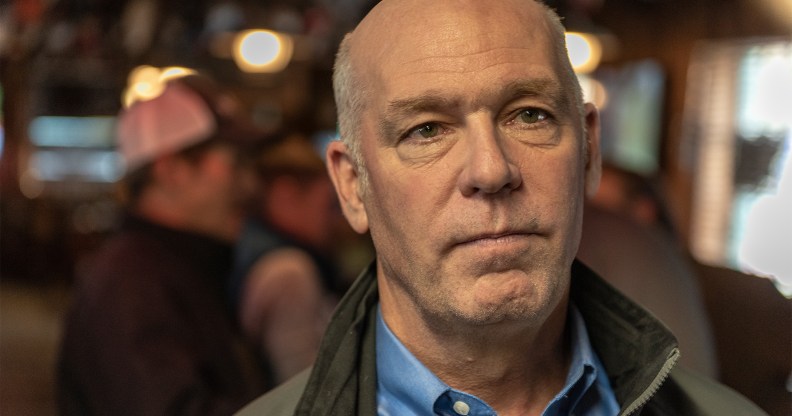Judge temporarily blocks Montana’s vaguely worded anti-drag bill

Montana governor Greg Gianforte signed Senate Bill 359 into law on Monday, 22 May, 2023. (Getty)
A federal judge in Montana has temporarily blocked a vaguely worded drag ban that could be interpreted to ban many types of performances, just in time for a Pride event.
The controversial bill – HB359 – was signed into law by Republican governor Greg Gianforte on 22 May and bans drag shows from taking place in public across Montana.
But it has come under scrutiny for its definition of drag being so loosely defined it could be interpreted “to ban many types of performances”.
On Wednesday (26 July), district judge Brian Morris heard a suit against the law and granted the plaintiff’s request for temporary restraining order against it, barring the state from enforcing it on Friday.
Following the hearing, Constance Van Kley, an attorney with Upper Seven Law, a nonprofit law firm representing the plaintiffs, told Helena TV station KTVH: “What today’s hearing really solidified is that nobody seems to know exactly what it says, and with regard to the First Amendment, that is in and of itself a constitutional problem.”
The temporary block comes ahead of Montana Pride, which begins in the state capital of Helena, the state capital, on Sunday (30 July) until 6 August.
Helena city officials said they intend to grant a permit for the event but wanted temporary restraining order as well, Advocate reported.
The law defines both drag queens and kings as “a male or female performer who adopts a flamboyant or parodic [male or female] persona with glamorous or exaggerated costumes and make-up.”
But the definition of drag is so loosely defined that it will ban most forms of pantomime, music concerts, Shakespearean plays and many other performances.
A lawsuit filed against the bill by a trans woman, an independent bookshop and other individuals and institutions in July said the law “is an unconstitutional content- and viewpoint-based restriction on free speech”.
The suit added that the wording of the bill is “vague and confusing” and could be construed to ban many types of performances.
It’s expected that Morris will schedule a hearing in late August where he may grant a longer-term injection against the law.

